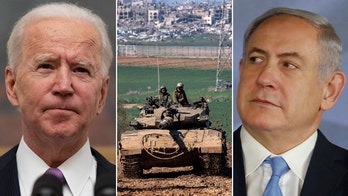Ukrainian Foreign Minister Dmytro Kuleba and First Lady Olena Zelenska's surprise visit to Serbia signals a shift in diplomatic dynamics between the two nations, despite Serbia's neutrality stance in the ongoing Russia-Ukraine conflict.

Amidst the ongoing conflict in Ukraine, a diplomatic dance has unfolded between Ukraine and Serbia, two nations with differing geopolitical inclinations. On May 13, 2024, Ukrainian Foreign Minister Dmytro Kuleba and First Lady Olena Zelenska made a surprise visit to Serbia, a country that has maintained neutrality regarding the war but has also maintained close ties with Russia.
Kuleba's visit, his first since the outbreak of the conflict in 2022, was met with mixed reactions in Serbia. The Serbian government, led by pro-Russian President Aleksandar Vucic, issued a statement reaffirming its commitment to international law and the territorial integrity of all UN member states, including Ukraine. However, there are reports suggesting that Serbia has been providing weapons to Ukraine through intermediary countries.

Despite its declared neutrality, Serbia has refused to join international sanctions against Russia and has maintained warm relations with Moscow. This stance has drawn criticism from Ukraine and its Western allies. Nevertheless, Vucic has repeatedly stated that Serbia is firmly committed to its goal of seeking European Union membership.
The visit by Kuleba and Zelenska, which included a tour of the Serbian capital with Serbian First Lady Tamara Vucic, was met with criticism in Moscow. Russian state-run media outlets published comments from readers condemning the visit as "shameful." In an apparent attempt at damage control, Vucevic met with the Russian ambassador to Belgrade and toured a storage facility for Russian gas shortly after his talks with Kuleba.
Despite the tensions, Vucic has informally met with Ukrainian President Volodymyr Zelenskyy on several occasions. Serbia has also provided Ukraine with humanitarian and financial aid. Vucic claims to follow a "neutral" policy, balancing ties with Moscow, Beijing, Brussels, and Washington. However, under his rule, Serbia appears to be shifting closer to Russia and China.
During a high-stakes visit by Chinese President Xi Jinping to Belgrade last week, China and Serbia signed an agreement to build "ironclad" relations and a "shared joint future." This move signaled a growing alignment between the two countries, potentially challenging Western influence in the region.
Ukraine's diplomatic overture to Serbia is a subtle attempt to strengthen its position in the region and garner support against Russian aggression. Serbia, for its part, is facing increasing pressure to choose between its traditional ties with Russia and the Western path it has proclaimed to be its future. The evolving dynamics between these nations will undoubtedly shape the geopolitical landscape of the Balkans and beyond.










